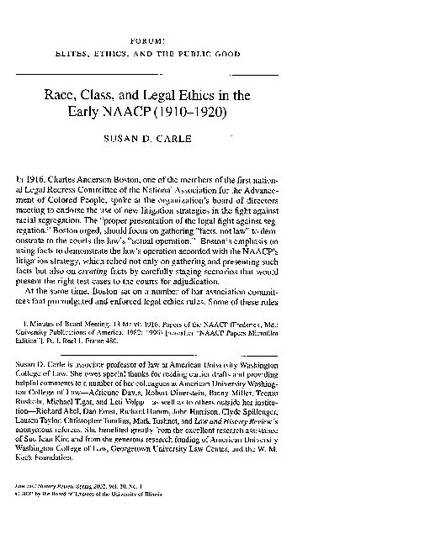
Article
Race, Class, and Legal Ethics in the Early NAACP (1910-1920)
Law & History Review
(2002)
Abstract
INTRODUCTION: In 1916, Charles Anderson Boston, one of the members of the first national Legal Redress Committee of the National Association for the Advancement of Colored People, spoke at the organization's board of directors meeting to endorse the use of new litigation strategies in the fight against racial segregation. The "proper presentation of the legal fight against segregation," Boston urged, should focus on gathering "facts, not law" to demonstrate to the courts the law's "actual operation."' Boston's emphasis on using facts to demonstrate the law's operation accorded with the NAACP's litigation strategy, which relied not only on gathering and presenting such facts but also on creating facts by carefully staging scenarios that would present the right test cases to the courts for adjudication. At the same time, Boston sat on a number of bar association commit- tees that promulgated and enforced legal ethics rules.
Keywords
- NAACP,
- segregation,
- litigation,
- strategy,
- courts
Disciplines
Publication Date
2002
Citation Information
Susan D. Carle. "Race, Class, and Legal Ethics in the Early NAACP (1910-1920)" Law & History Review Vol. 20 (2002) p. 97 Available at: http://works.bepress.com/susan_carle/58/
